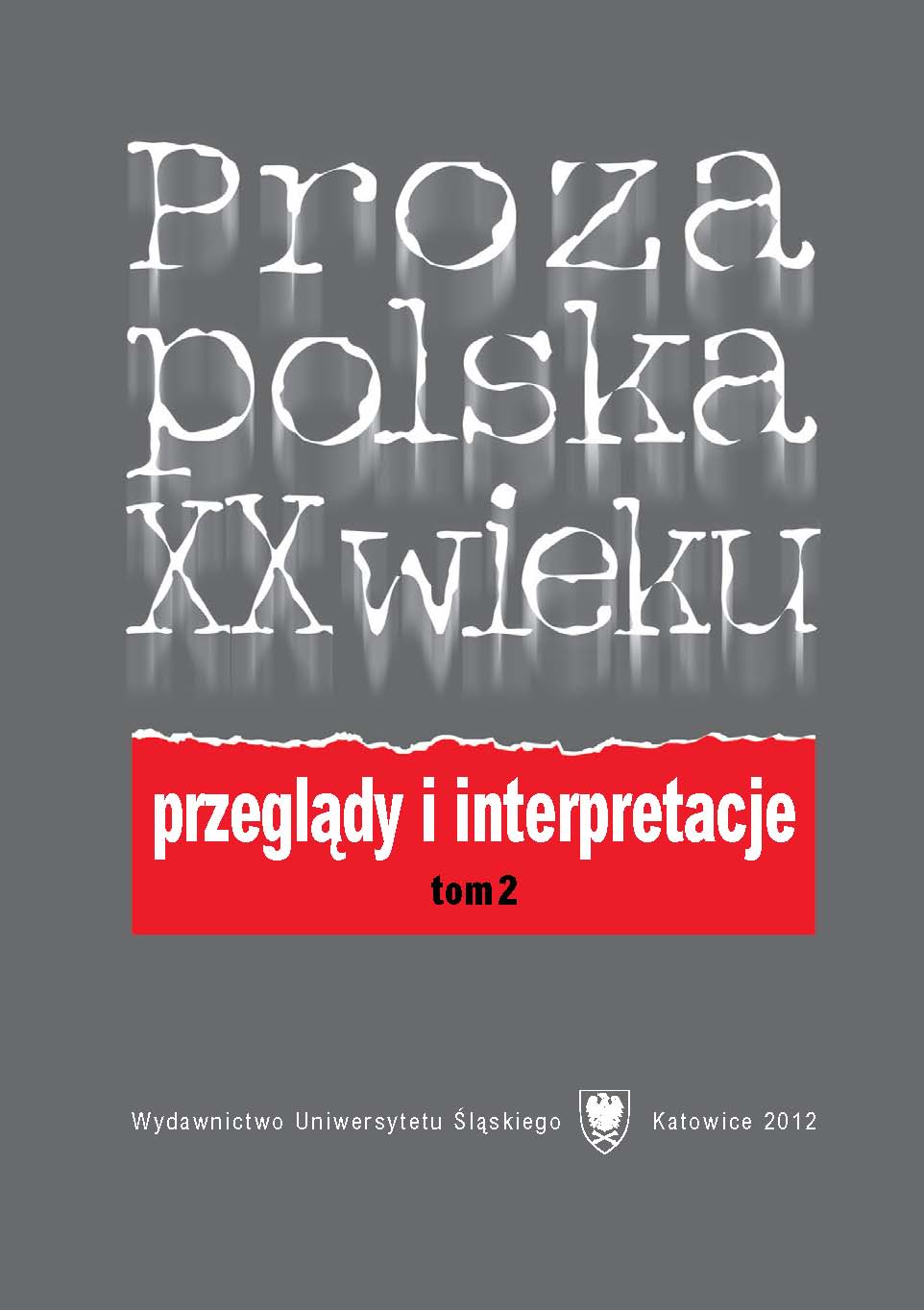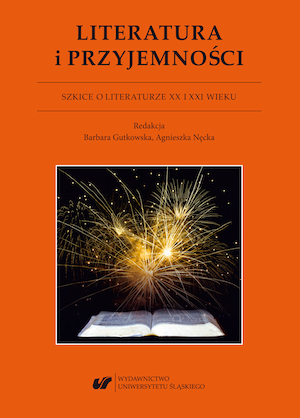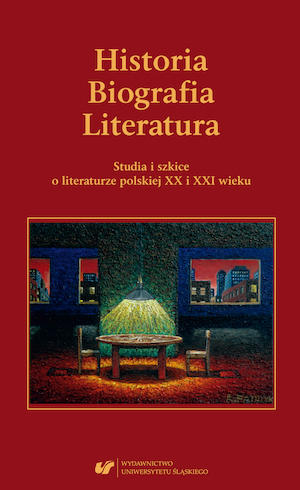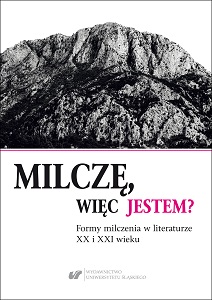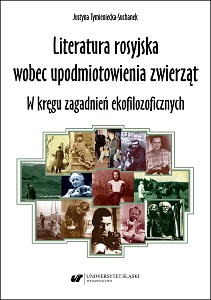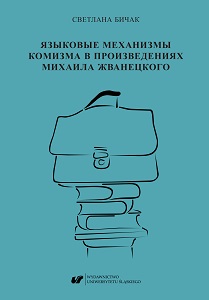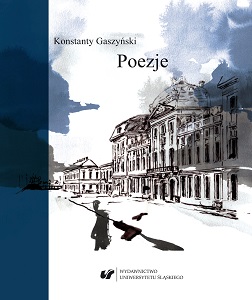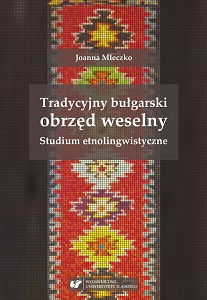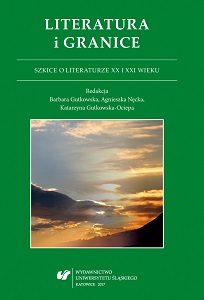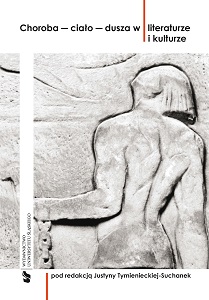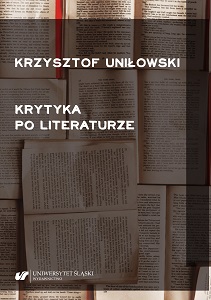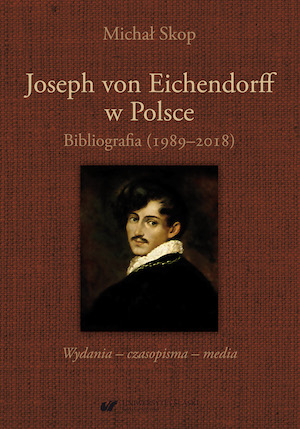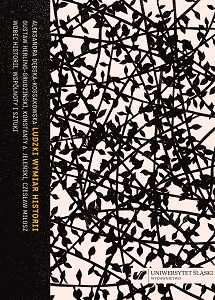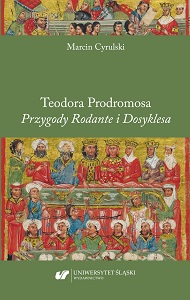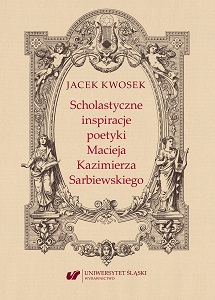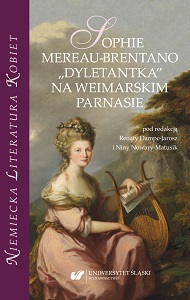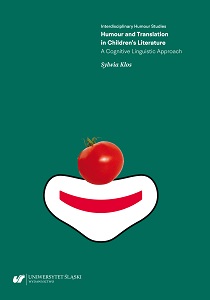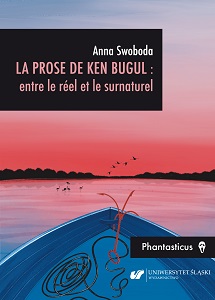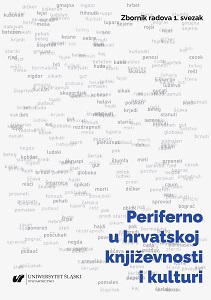Choroba – ciało – dusza w literaturze i kulturze
Author(s): / Language(s): Russian,Polish
Keywords: llness; Body; Soul; Literature; Culture
Projekt konferencji, jak również prezentowany czytelnikom tom jest pierwszą tego typu publikacją w Polsce, która podejmowała zagadnienie językowych/tekstualnych/kulturowych praktyk choroby, analizowała kontekstualizacje ciała chorego w odmiennych dyskursach niż paradygmatyczne critiques/clinique Gilles’a Deleuze’a czy Michela Foucaulta. Publikacja nie ma odpowiednika w literaturze krytycznej: derekonstruuje diagnozowaną przez filozofów, historyków, kulturoznawców, socjologów ciała zmianę paradygmatów kulturowych, kondycję nowoczesnego, ponowoczesnego, ucieleśnionego podmiotu, matryce nieobecnego-i-obecnego ciała chorego, jego artykulacje, mediacje w Ja-Podmiocie-Pisma-Ciała-Literatury, a jego symptomatologia pozwoliła diagnozować problematykę relacji ciała biologicznego i ciała tekstu, somatyczności i semiologii, symbolologii, tropologii, narracje sôma-sema Kultury (-r)/Literatury (-r), pisalności – konstruować projekt krytyki somatycznej, somatoestetycznej, modalności piszącego się ja w autoperformatywnych (subwersywnych) strategiach wytwarzania. Krytyka somatoestetyczna jest pluralistyczna, multiplikuje domeny konceptualne, operatory konstrukcyjne wielu dyscyplin, tworząc konglomerat wielu języków krytycznych (lingwistyki, komparatystyki, psychoanalizy, semioanalizy, feminizmu, gender, queer, culture stadies, pragmatyzmu).Performatywne reprezentacje Ja-Podmiotu-Pisma-Ciała-Literatury sondowane w odmiennych językach analitycznych pozwoliły kontekstualizować transkulturową, interdyscyplinarną, krytyczną mapę tekstualnych narracji, historii, skryptów sympto-/symbo-/semio-/troplogii choroby (m. in. gruźlicy, anoreksji, bulimii, depresji, uzależnień, chorób nowotworowych, syndromu stresu pourazowego) w somatoestetycznych domenach konceptualnych. Uczestnicy konferencji wypracowali tekstualną nozologię nowoczesnych i ponowoczesnych somatogennych modeli, ich artykulacje w Ja-Podmiocie-Piśmie-Ciała; kreślili heterotopie miejsc, przestrzeni kontroli (społeczno-politycznych i prywatnych) nadzorujących, wykluczających, represjonujących ciało: szpitala, domu (łazienki, kuchni, sypialni) rewaloryzowanych jako szczególne miejsca transgresji: życia/śmierci, zdrowia/choroby, nadmiaru/braku wolności, potwierdzając i wzmacniając stany zdekonstytuowanego podmiotu. Somatyczne doświadczenie aktualizowane przez piszące ciała autorów, mówiące, histeryzujące poetek/pisarek nie były konceptualizowane przez badaczy wyłącznie w dyskursach medycznych, systemie jednostek chorobowych, deskrypcji zespołu objawów, patologii. Autorzy wystąpień konsekwentnie poddawali krytycznemu czytaniu autoperformatywność, transgresywność tekstualnych chorób, matryce cielesnych identyfikacji czytającego/piszącego/oglądającego się podmiotu, interpretowali subwersywne praktyki ja. Autosomalna choroba Pisma – nałóg wytwarzania się, odciskania śladów Ja-Ciała w Alfabecie; egzystencjalna konieczność reprodukowania, kopiowania, kliszowania, multiplikowania się, wpisywania/przepisywania siebie-z-siebie wskazywała na uzależnienie od nieprzechodniego czasownika pisać się, sygnifikować się w procesie stymulacji pragnienia, pożądania Innego. Nadmiar wchłoniętych i niestrawionych słów wywoływał bulimiczne mdłości lub ich brak powodował permanentny, anorektyczny głód wyrażalności, konstruując autoperformatywne praktyki. Ponowoczesność formatowała strategie somatycznego doświadczenia podmiotu generowanego przez idiomatyczną fizjologię/symptomologię Ja.Ideologema chorego organizmu jest wyjątkowo labilna i operatywna: umożliwia rewaluacje autobiograficznych skryptów, deskrypcje modyfikacji podmiotów; diagnozuje problemy identyfikacyjne (zmienną markerów antropologicznych), pozwala prześledzić mapę zmian stratyfikacji społecznej, penetrować transformacje polityk państw (asymilacji/wykluczenia) adaptujących i kooptujących migrujące komórki do wewnątrz ciała społeczno-politycznego: nacje, kultury, systemy filozoficzne, religijne, a metaforyzowana kategoria mikrobiologicznej homeostazy w wielu projekcjach staje się surogatem marzeń o wolności jednostek, równości obywateli w demokratycznym systemie.Kontekstualizacje i dyskursywizacje tekstualnych reprezentacji i artykulacji choroby, ciała chorego w angielskiej, polskiej, romańskich i słowiańskich literaturach, filozoficznych tekstach, pismach współczesnych oświeconych, kodach amerykańskiej kultury filmowej prowokujące projekt krytyki somatoestetycznej generowanej subwersywnymi praktykami Ja-Podmiotu-Pisma-Ciała-Literatury-Filozofii-Kultury. Tom pokonferencyjny Choroba – ciało – dusza w literaturze i kulturze rewaluuje skrypt (-y) ciała chorego, tekstualne matryce chorób, reprezentacje doświadczeń ucieleśnionego podmiotu, restytuując projekt (-y) poetyki (-k)/krytyki (-k) somatoestetycznej. Interdyscyplinarne ramy somaestetyki Richarda Shustermana eksplorujące wiele dziedzin warunkują pluralny wymiar krytyczny dyscyplin doświadczenia ciała w wymiarze teoretycznym, jak i praktycznym, ustanawiając etyczną odpowiedzialność podmiotów za autoreprezentację, warunki i jakość egzystencji przeciw opresji przygodności; dostarczają matryc do świadomych konstrukcji tożsamości; strategii do jego odpowiedzialnych modyfikacji – kulturę/filozofię self-help, która pozwoli neutralizować ideologiczne technologie corps, doktryny władzy-wiedzy, przemieścić polityki konsumpcjonizmu.Melioracyjne doświadczenie somatoreceptora łączące teorię z praktyką urasta do postprojektu ponowoczesnej filozofii życia, która przełamuje konstrukty estetyzacji generowane przez filozofów subersji/transgresji Pisma (ekstremistów: Michela Foucaulta, Gilles’a Deleuze’a; radykałów Rolanda Barthes’a Jacques’a Derridę), wyzwala ja w akcjach wywrotowych indywidualnego praktykowania ciała derekonstruującego, derewaloryzującego ideologemy piękna narzucone przez translacyjną kulturę – stosowalna somatotropia przeciw zawłaszczającym dyskursom.Somaestetyka mapuje zagadnienie relacji człowiek-maszyna, problematyzując idee techné generującego postestetykę, jako że współczesny człowiek jest udoskonalany przez protezy, implantacje, przeszczepy – w coraz większym stopniu pozostaje zależny od maszyn, a inżynierowie-robotycy nieustannie pracują nad projektami transformacji human body, działania których antycypują kolejny cultural turns. Shusterman wysunął hipotezę, że relacyjność biologicznego/technologicznego jest jednym z paradygmatów kulturowych i pozostaje w autozwrotnym/autosymetrycznym warunkowaniu, jednak pozostaje otwartym pytanie o konsekwencje bioetyczne dla cywilizacji (życia), które wymagają czujnej rewaloryzacji. W wymiarze indywidualnym, jak i społecznym ponowoczesna tożsamość operuje cyfrowo-analogowym ciałem: nawet tak oczywistej i powszechnie dostępnej przestrzeni komunikacji jaką jest skype – w aktach wirtualizacji, symulacji biologicznego ciała, wizualnym i oralnym współwytwarzaniu podmiotów – autoperformatywne konstruowanie świadomego leib stanowi filtr ochronny przeciw wydziedziczeniu z siebie, jeśli w taki sposób czytać idee Shustermana.
More...
